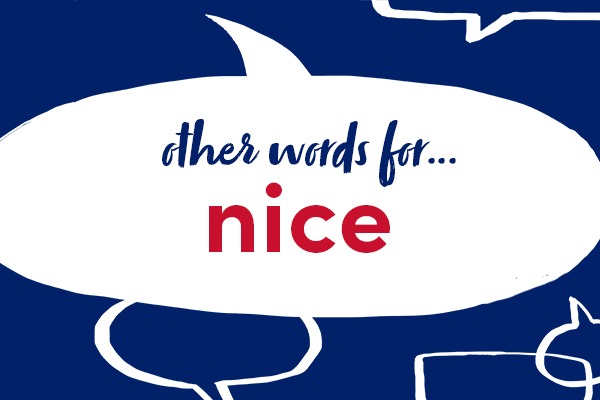The word ‘nice’ is one of the most frequently used words in English, yet there are many other different words you can use instead to be more specific and make your writing more interesting.

Why not use these words if you want to talk about the weather?
- fine The day we left was fine and warm.
- good We’ll eat in the garden if the weather is good.
- pleasant It was pleasant weather for a picnic.
- lovely Saturday was a lovely autumn day.
To talk about a person, use words like:
- charming He turned out to be a charming fellow.
- delightful A delightful lady offered us a cup of tea.
- kind It was kind of Alexis to invite me.
- likeable The interviewer was pleasant and easy to talk to.
To describe a meal, use:
- appetizing An appetizing smell wafted in.
- delicious Strawberry jam, cream and scones make a delicious combination.
- scrumptious “That was a scrumptious lunch,” Omar said.
- tasty “Thanks for the dinner,” said Fred. “It was really tasty.”
For talking about things such as clothes, use:
- beautiful The dress in the window was beautiful but very expensive.
- elegant I thought mum and dad looked elegant in their eveningwear.
- smart She looked very smart for her interview.
Look at the Thesaurus entry for nice to find other synonyms and examples.
All opinions expressed on this blog are those of the individual writers, and do not necessarily reflect the opinions or policies of Collins, or its parent company, HarperCollins.



